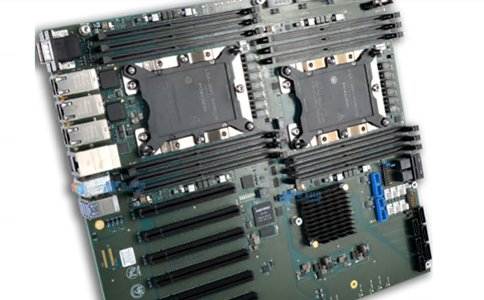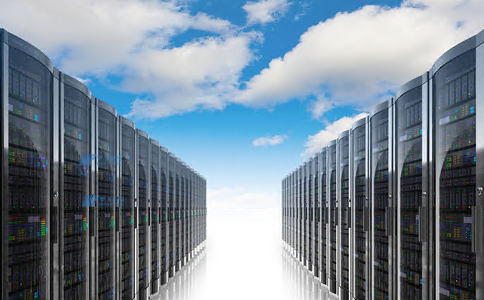With the rapid growth of the gaming industry, more and more independent developers and small studios are starting their own game projects. Game development requires not only creativity and design but also strong technical support, and servers are an essential part of this process. Whether for game testing, hosting multiplayer modes, or continuous updates and maintenance, selecting the right game development server is crucial.

This article will guide you on how to choose and rent a suitable server for game development, helping you improve efficiency and ensure the smooth progress of your project.
一、 Why Rent a Game Development Server?
Renting a game development server has several advantages compared to building your own development environment:
- High-performance support: Game development, especially for multiplayer online games, requires powerful servers to support complex physics calculations, image rendering, and data storage tasks.
- Flexible resource configuration: Renting a server allows you to adjust the configuration flexibly to meet the changing needs of different stages of the project, such as increasing processing power, memory, etc.
- Remote collaboration: By renting a server, team members can collaborate remotely from different locations, sharing development resources in real-time, ensuring the project runs smoothly.
- Reliable data storage and backup: Data security is crucial in the development process. Professional servers' backup services ensure the safety of the project.
二、 How to Choose a Suitable Server for Game Development?
Choosing the right server is not a simple task. Here are several key factors:
1. Processing Power (CPU)
Game development involves heavy data processing and calculations, especially for complex graphics rendering, physics engines, and AI computations. The performance of the CPU is critical. Multi-core processors can efficiently handle concurrent tasks. It is recommended to choose high-performance CPUs, such as Intel Xeon or AMD EPYC series.
2. Memory (RAM)
Memory is another core configuration in a game development server. Data reading, simulation testing, and resource loading all rely on ample memory. If your game project involves complex scenes or requires running multiple development tools and software, it is recommended to choose servers with at least 16GB or 32GB of memory.
3. Storage (SSD)
Compared to traditional HDDs, SSD storage provides much faster data read and write speeds, which is essential for quickly loading project files, running virtual machines, and fast data transfer. During game development, especially when handling large resources and files, SSD storage greatly enhances efficiency. NVMe SSD is the fastest storage available, making it a priority choice.
4. Bandwidth and Network Speed
Whether performing multiplayer online tests or uploading large game assets, the server's bandwidth and network speed are crucial. Low latency and high bandwidth ensure smooth data transfer and prevent work delays caused by network issues. Choosing a data center closer to your team members can reduce latency and improve network performance.
5. Operating System and Software Support
During game development, you may need to use various development tools and software (such as Unity, Unreal Engine, etc.). Ensure that the server you rent is compatible with your operating system (Windows, Linux, etc.) and can support the necessary development environment and tools.
6. Scalability and Flexibility
The needs of game development projects may change as the project progresses, so it’s essential to choose a server with high scalability. For example, when a project transitions from prototype to full-scale development, the server's memory, storage, and processing power will need to be adjusted based on actual needs. Therefore, choosing a server solution with scalable resources will save time and cost in the long run.
三、 How to Rent a Game Development Server?
Once you've selected the right server configuration, the next step is to choose a service provider and proceed with the setup.
1. Choose a Reliable Service Provider
When renting a server, ensure that the hardware and network resources provided by the service provider meet your development needs. Several service providers offer specialized game development server rental services. AWS, Google Cloud, Microsoft Azure, and Alibaba Cloud offer cloud servers that are suitable for fast scaling and resource adjustment, while providers like OVH and DigitalOcean offer dedicated servers for developers who need more control over configuration.
2. Evaluate Customer Support
Technical issues often affect progress during game development, so it’s crucial to choose a server provider that offers good customer support. A high-quality technical support team can help resolve issues, from server configuration to application deployment, ensuring that the development process is not delayed.
3. Configure and Deploy the Server
After renting the server, configuration and deployment can usually be done through a control panel or by logging in remotely via SSH. Depending on the project’s needs, install the necessary development tools, databases, and other software. Most service providers offer one-click deployment for game development environments, which simplifies the setup process.
4. Regular Maintenance and Backup
Regular server maintenance and data backup are also key to ensuring the smooth progress of development. Make sure to back up game code, resources, and data regularly to prevent data loss. If the service provider offers automated backup features, set up a regular backup schedule.
四、 Frequently Asked Questions
1. What is the cost of renting a game development server?
Server rental costs vary depending on configuration, provider, and rental duration. Entry-level servers may cost between $15 to $70 per month, while high-performance servers may cost more, upwards of $150 per month. You should choose a plan based on your project's scale, budget, and needs.
2. How should I choose bandwidth and traffic configurations when renting a server?
The bandwidth and traffic needs depend primarily on the scale of multiplayer testing. If only small-scale multiplayer testing is required, medium bandwidth may suffice; however, for large-scale multiplayer game development, it is recommended to choose a server with high bandwidth.

五、 Conclusion
Choosing the right server for game development provides solid technical support for your project. When selecting a server, ensure that you pay attention to CPU performance, memory configuration, storage speed, bandwidth, and other factors. Also, choose a reliable service provider and perform regular maintenance and backups to ensure smooth development. With these recommendations, you can lay a strong foundation for your game development work and improve efficiency.
